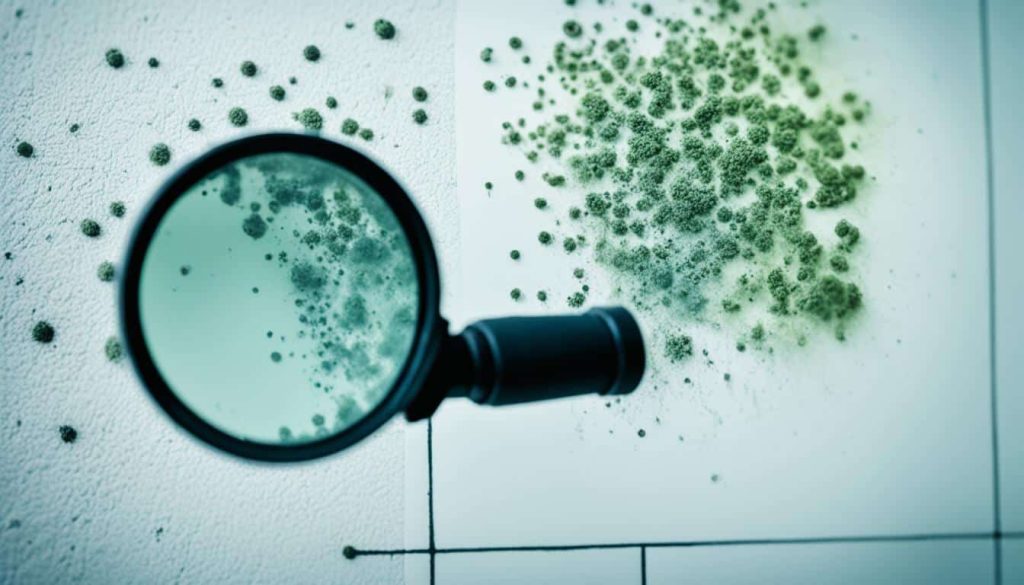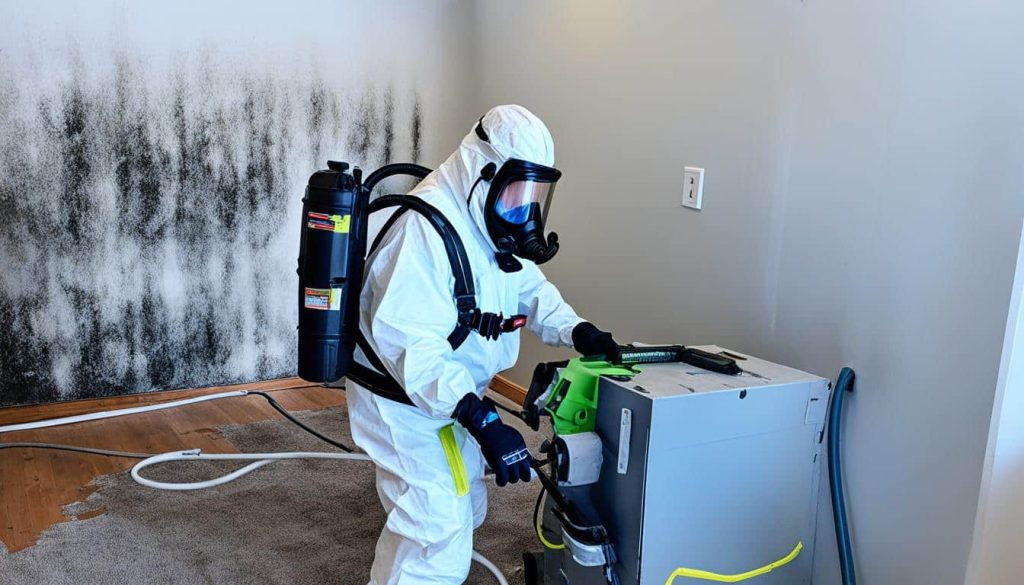The question of whether “Does bleach kill mold?” is one of the most prevalent myths I encounter in mold remediation. Many homeowners and even some professionals believe that bleach is a go-to solution for mold problems. However, this belief is based on misinformation. To address this myth, it’s essential to understand how bleach interacts with mold and why it is not the ideal choice for mold remediation.
Array of Solutions, a trusted name in mold removal in Greenville South Carolina since 2007, stands ready to tackle your mold woes. With our expert mold inspection Greenville services and EPA-Registered credentials, we’re equipped to detect, remove, and prevent mold growth in your home or business.
Table of Contents
The Chemistry Behind Bleach
Bleach is a disinfectant primarily used to sanitize non-porous surfaces. Its active ingredient, sodium hypochlorite, is effective at killing bacteria and other pathogens on surfaces that do not absorb liquids. When applied to these surfaces, bleach works by breaking down the cell walls of microorganisms, thus eliminating them and whitening the surface.
Surface Sanitization: On non-porous surfaces like tiles, glass, or countertops, bleach can indeed remove stains and sanitize the area. This makes it a useful product for general cleaning and disinfection where bacteria are a concern. However, this property does not translate effectively to mold remediation.

Does Bleach Kill Mold? : Why Bleach Fails Against Mold
Mold is a complex organism with a unique structure that makes it resistant to conventional cleaning agents like bleach. The primary reasons why bleach is not effective in killing mold include:
- Porous vs. Non-Porous Surfaces: Mold typically grows on porous materials such as wood, drywall, and carpet. These materials absorb moisture and can harbor mold spores deep within their fibers. When bleach is applied to porous surfaces, it only addresses the mold on the surface layer. The invisible roots and spores embedded in the material remain unaffected. As a result, the mold can regrow once the moisture returns.
- Root Structure: Mold has a root-like structure known as hyphae, which penetrates deeply into the material it is growing on. Bleach can only kill mold on the surface and does not reach or destroy the hyphae. Consequently, the mold can regrow from these remaining roots if moisture conditions are favorable.
- Moisture and Mold Regrowth: Mold spores are persistent and can survive in the environment for extended periods. Bleach does not eliminate these spores; it only sanitizes the surface where the mold is visible. If the moisture source that initially caused the mold growth is not addressed, the mold can return and continue to spread.
The Effective Approach to Mold Remediation
To effectively address mold problems, a more comprehensive approach is required. The key steps in successful mold remediation include:
- Identifying and Eliminating Moisture Sources: Mold needs moisture to thrive. The first step in mold remediation is to identify and eliminate the source of moisture. This may involve repairing leaks, improving ventilation, or using dehumidifiers to reduce humidity levels.
- Thorough Cleaning and Removal: For visible mold on non-porous surfaces, cleaning with appropriate antimicrobial solutions can help. For porous materials, it may be necessary to remove and replace the affected materials to ensure complete mold removal. Using specialized mold cleaners and fungicides is more effective than bleach in these cases.
- Containment and Safety Measures: During mold remediation, it is crucial to contain the affected area to prevent the spread of mold spores. This involves sealing off the area and using negative air pressure machines to control the environment.
- Final Inspection and Prevention: After remediation, a thorough inspection ensures that all mold has been removed and that the area is safe for reoccupation. Additionally, implementing preventive measures to address moisture issues helps to prevent future mold growth.

Conclusion
In summary, bleach is not an effective solution for mold remediation. While it can sanitize non-porous surfaces and remove discoloration, it fails to address the deeper mold roots and spores that reside in porous materials. For effective mold removal, a comprehensive approach involving moisture control, specialized cleaning agents, and thorough removal of contaminated materials is necessary.
If you have mold issues in your home or business, consult a professional mold remediation service to ensure that the problem is addressed correctly and efficiently. For more information on effective mold remediation strategies, please contact us or visit our website.
